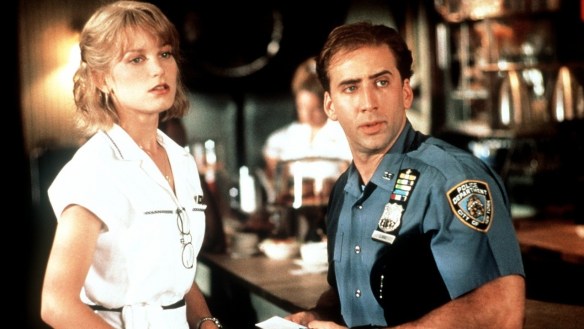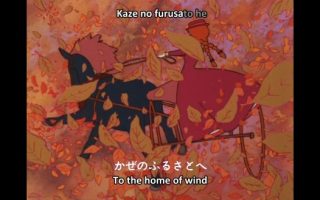Hello folks, and welcome back to Wrong Every Time. Today I am lamenting the death of the summer, and prepping for another eight month New England winter here in the frigid, unforgiving northern reaches. But hey, at least we’ve got Silksong coming on Thursday, which I imagine will be consuming my life altogether for the ensuing weeks. I doubt you need my recommendation, but Hollow Knight really is that good – by far the best Metroidvania game I’ve played, with an inventive world that constantly rewards exploration, delightful art design, and an incredibly responsive, tightly tuned combat system. In contrast with 3D Souls-likes’ increasing reliance on pure reaction time, Hollow Knight consistently rewards spacing, forethought, and genuine mastery; it’s basically the perfect marriage of platforming and Castlevania (or even Smash Bros) combat. You can tell I’m already salivating, but I’ll try to contain myself for the moment, as we burn through another week in films!
First up this week was It Could Happen To You, a ‘90s romance starring Nicholas Cage as a New York cop who wins a four million dollar lottery, and Bridget Fonda as the recently-bankrupt waitress to whom he idly promised half of his potential winnings as a tip. Cage’s wife (played by a delightfully self-absorbed Rosie Perez) is understandably less than thrilled about this act of supreme benevolence, instigating a battle that might well leave Cage freshly penniless, but at least rich in newfound love.
It Could Happen To You is a feel-good romance about excellent people behaving excellently, a fluffy blanket of good cheer centered around the nicest cop in the history of New York City. Cage actually manages to sell his characters’ aw-shucks saintliness; when he says “I dunno, anyone would have done the same,” you can believe he actually thinks that, and swoon alongside Fonda at the existence of such a perfect gentleman.
Aside from Perez’s gleeful villainy, what I found most engaging about this film was its naturalistic approach to romance. In spite of its fantastical premise, the chemistry shared by Cage and Fonda feels genuine, owing in significant part to the film’s refreshingly grounded dialogue. The two don’t trade lofty romantic paeans or incessant witticisms; they stumble over their words and get caught in misunderstandings, generally coming across as a pair of normal, frequently tongue-tied people rather than perfectly scripted romantic icons. A deliberately light and inessential film, a piece of cotton candy that offers a jolt of sugar and then melts into memory.
Next in our Godzilla canon rampage was Ebirah, Horror of the Deep. When three young men and a professional thief wash up on a mysterious island, they soon discover it has been taken over by a nefarious secret organization. This group have been stealing innocents from Infant Island to work developing nuclear materials, with the threat of the voracious sea-dwelling Ebirah keeping them from escaping. With nowhere else to turn, our castaways eventually decide to wake the slumbering Godzilla, and let the natural process of miniature factory versus man in lizard suit take its course.
Ebirah marks a welcome turning point in the Godzilla franchise, as new director Jun Fukuda takes a different, more ground level-approach to the drama. While the original Godzilla films were essentially society-scale disaster films, Ebirah is a character-focused adventure, spending most of its running time exploring, investigating, and sabotaging with its human characters before Godzilla even takes the scene. The results are quite effective; kaijus like Godzilla and Mothra maintain more a sense of scale and consequence when kept in reserve, while Ebirah’s human characters are strong enough to give the film a sense of genuine danger, as people you’ve actually come to know are put in harm’s way.
The film thus serves as the culmination of a transition begun during Ghidorah, with a human drama involving chase scenes and shootouts to complement the kaiju clashes. Godzilla thus shifts from the absolute, eternal centerpiece to merely one ally among many, a trusted yet cantankerous old soldier who can occasionally be roused to heroic performance. The model seems more sustainable than the first, which relied on a sense of awe that Godzilla simply no longer generates, and sets the franchise on a seemingly more replicable “Our Adventures With Godzilla” model for the foreseeable future.
The efficacy of that model is immediately proved with Jun Fukuda’s followup, Son of Godzilla. In this one, scientists attempting to design a weather-control device find their efforts thwarted by a trio of massive praying mantises. Eventually the dastardly mantises discover a giant egg, and break it open to reveal a Godzilla-like baby crying for help. The baby’s cries ultimately summon the genuine article, who does his best to teach his adopted son in the ways of roaring, atomic breath, and other kaiju staples.
As I said, Son of Godzilla maintains the approach of Ebirah, highlighting its human characters and offering a more action-adventure model relative to the initial disaster films. Godzilla doesn’t actually trample on any human settlements in this one; he is in pure reluctant father mode, and it is absolutely delightful to see it. His baby looks much like the dopey baby from the Dinosaurs TV series, is at least twice as clumsy as his not-particularly-agile father, and is the only creature I have ever loved. Whether he’s getting bullied by praying mantises or showing off his big strong roars to whoever will listen, Baby Godzilla is a delight, serving as firm and final affirmation of this new “Our Friend Godzilla” stage in the franchise.
Last up for the week was Leviathan, an ‘89 creature feature by George P. Cosmatos. Peter Weller stars as the commander of an underwater research facility that comes across a derelict Soviet ship, which appears as if it were intentionally scuttled. Seeing nothing suspicious about this discovery, they elect to infiltrate and bring back souvenirs from the craft, including a flask of vodka that they soon discover is actually full of Bone Melting Juice, which swiftly melts your body into some kind of sentient Cronenbergian monster.
Leviathan’s cast is excellent on the whole, and its creature effects are provided by the legendary Stan Winston, who also worked on Aliens, The Thing, and basically half the ‘80s and ‘90s most effects-heavy productions. Unfortunately, both cast and creatures are let down by a script that simply cannot escape the shadow of its influences. Practically every single scene in this movie is directly lifted from Alien, Aliens, or The Thing, and the comparison is never flattering to Leviathan; lacking either the narrative energy or the claustrophobic set design of its inspirations, nearly every development in Leviathan evokes a disappointed “man, Alien really is special, huh?” It remains a perfectly watchable film, but never compelling in its own right, which is in its own way more disappointing than a film which promises nothing and fully delivers.




